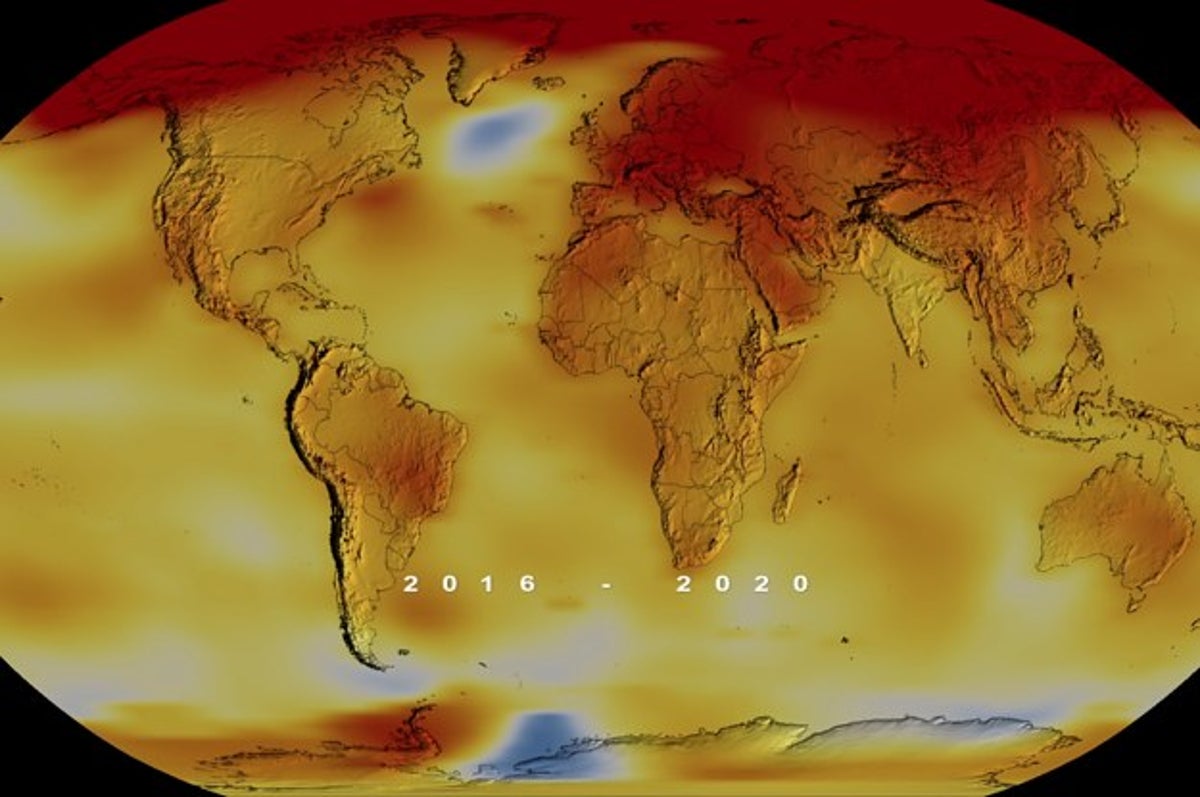2020 was officially one of the hottest years on record, a sign of unshakable global warming, according to a handful of analyzes published by scientists around the world in the past week.
The heat record comes after a year punctuated by climatic disasters: historic heat waves, hurricanes and forest fires.
“This is a clear indication that the global sign of human-induced climate change is now as powerful as the force of nature,” Petteri Taalas, secretary general of the World Meteorological Organization, said in a statement.
Analyzes disagree on whether 2020 was the warmest year on record. A NASA report published on Thursday found that 2020 narrowly surpassed 2016 as the hottest year ever, effectively breaking the record. Another analysis, published on Thursday by the National Oceanic and Atmospheric Administration, completed in 2020 was a close second to 2016. And last week, the European Union’s Copernicus Climate Change Service determined 2020 tied with 2016 as the hottest year.
The conclusions differ slightly because the research groups apply varied techniques to gather a global temperature picture based on temperature observations from thousands of weather stations.
The 2020 heat record is just the most recent in a series of years hit with the most heat.
“The past seven years have been the warmest seven on record,” said Lesley Ott, a NASA researcher. So, regardless of where individual years fall, “the consistency of the most recent years being the hottest on record is very, very clear,” she said.
For all of these analyzes, “the difference between 2020 and 2016 is less than the uncertainty in the record,” Zeke Hausfather, climate scientist at independent research group Berkeley Earth, told BuzzFeed News by email. “So it is effectively a draw for the hottest.”
2020 was marked by scorching heat for most of the year, only attenuated in the end by the natural cooling phenomenon, La Niña.
“The exceptional heat of 2020 occurs despite a La Niña event, which has a temporary cooling effect,” said Taalas.
Climate change generated other important heat records in 2020.
Siberia experienced a month-long heat wave and the Arctic city of Verkhoyansk recorded its warmest day, reaching 100 degrees Fahrenheit on June 20. “This event would have been effectively impossible without human-induced climate change,” concluded a team of scientists.
2020 was the warmest year on record in Europe, reaching 1.6 degrees Celsius above the average temperature from 1981 to 2010, according to Copernicus’ analysis. 2019 previously held that record, where observed temperatures were 0.4 degrees Celsius higher than in the same period.
Last year also marked the busiest hurricane season known in the Atlantic Ocean, as well as a series of historically damaging forest fires in the western United States. The result was that the United States experienced its biggest billion-dollar disaster in 2020. The year also started with some of the worst forest fires in Australia’s history. In addition, carbon dioxide levels continued to rise in the atmosphere, reaching a new high of 413 parts per million last May.
Meanwhile, the pandemic unleashed an economic shock that caused US emissions to fall by about 10.3% in 2020, according to a preliminary analysis by the research organization Rhodium Group, part of a greater trend of reducing emissions in all over the world last year. But a brief decline in emissions will not be enough to stem the global warming trend – which will require long-term emissions cuts.
“The vast majority of the warming we are seeing is due to human emissions of greenhouse gases,” said Ott.
